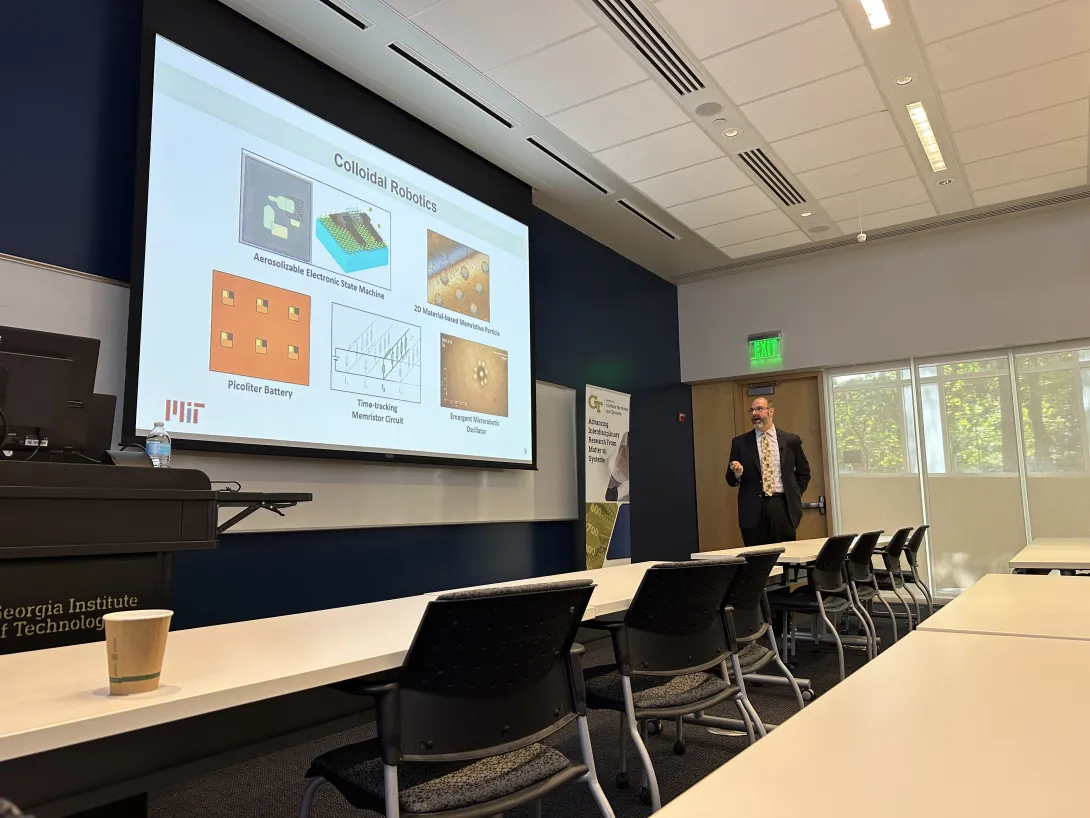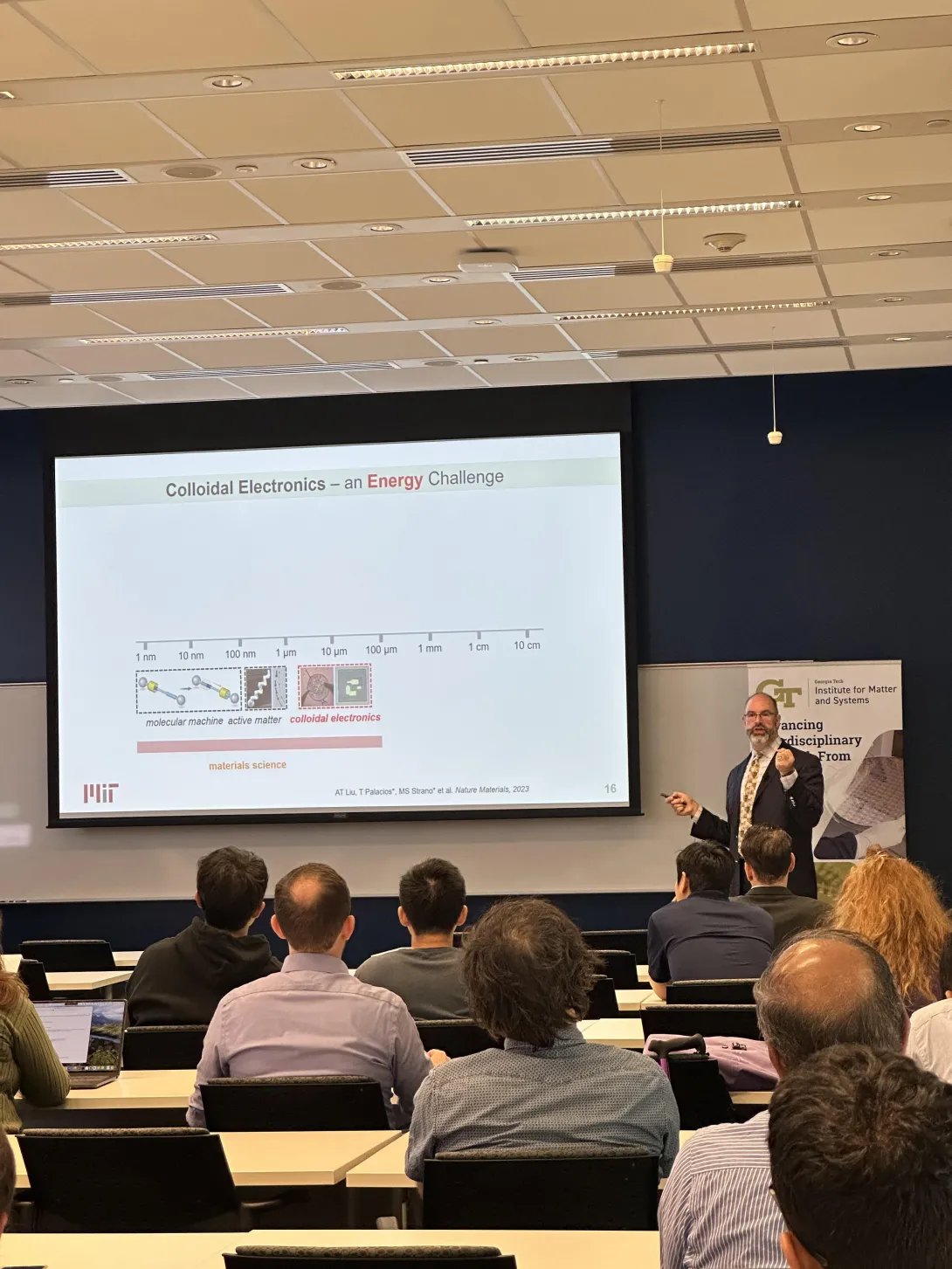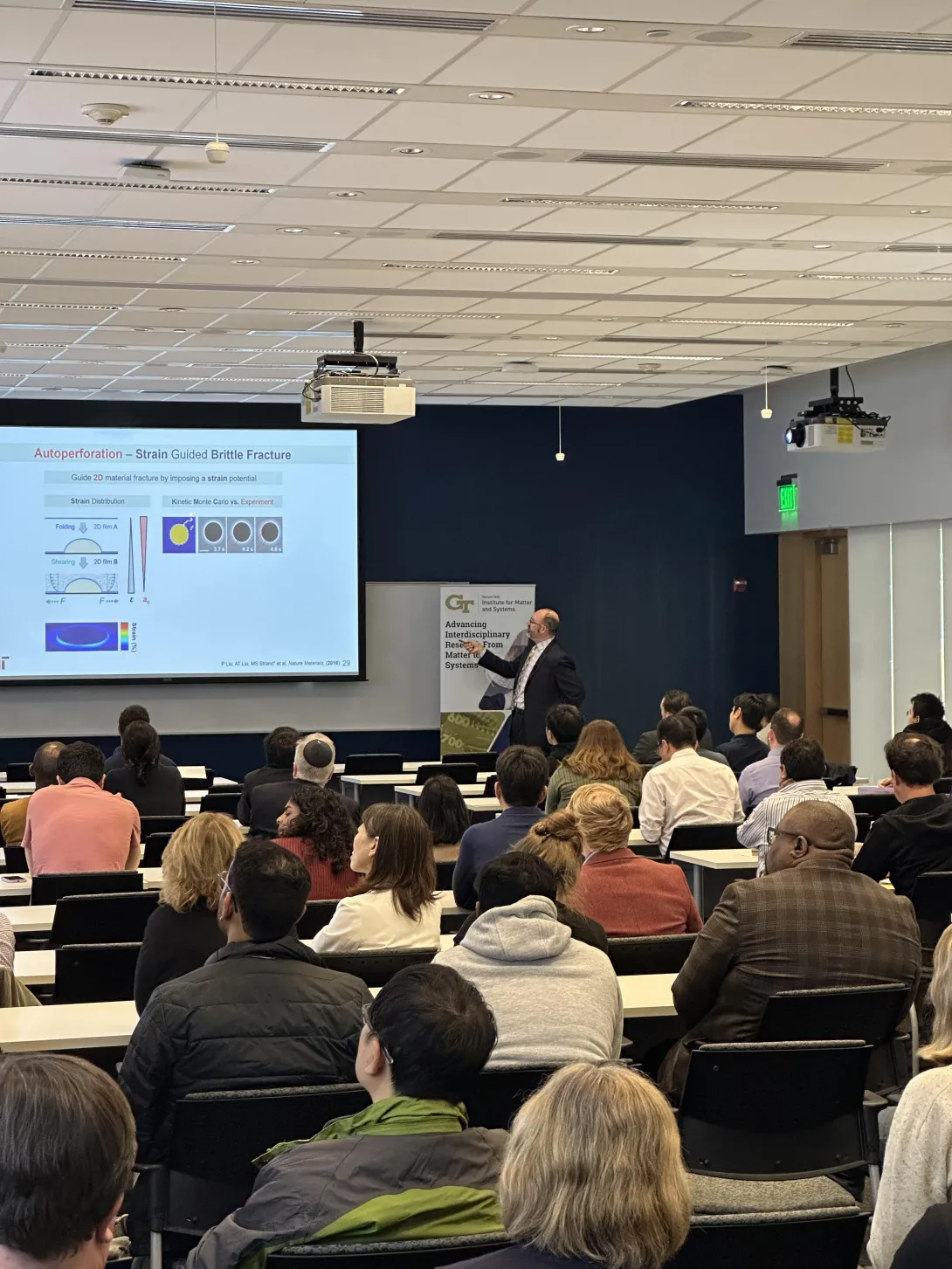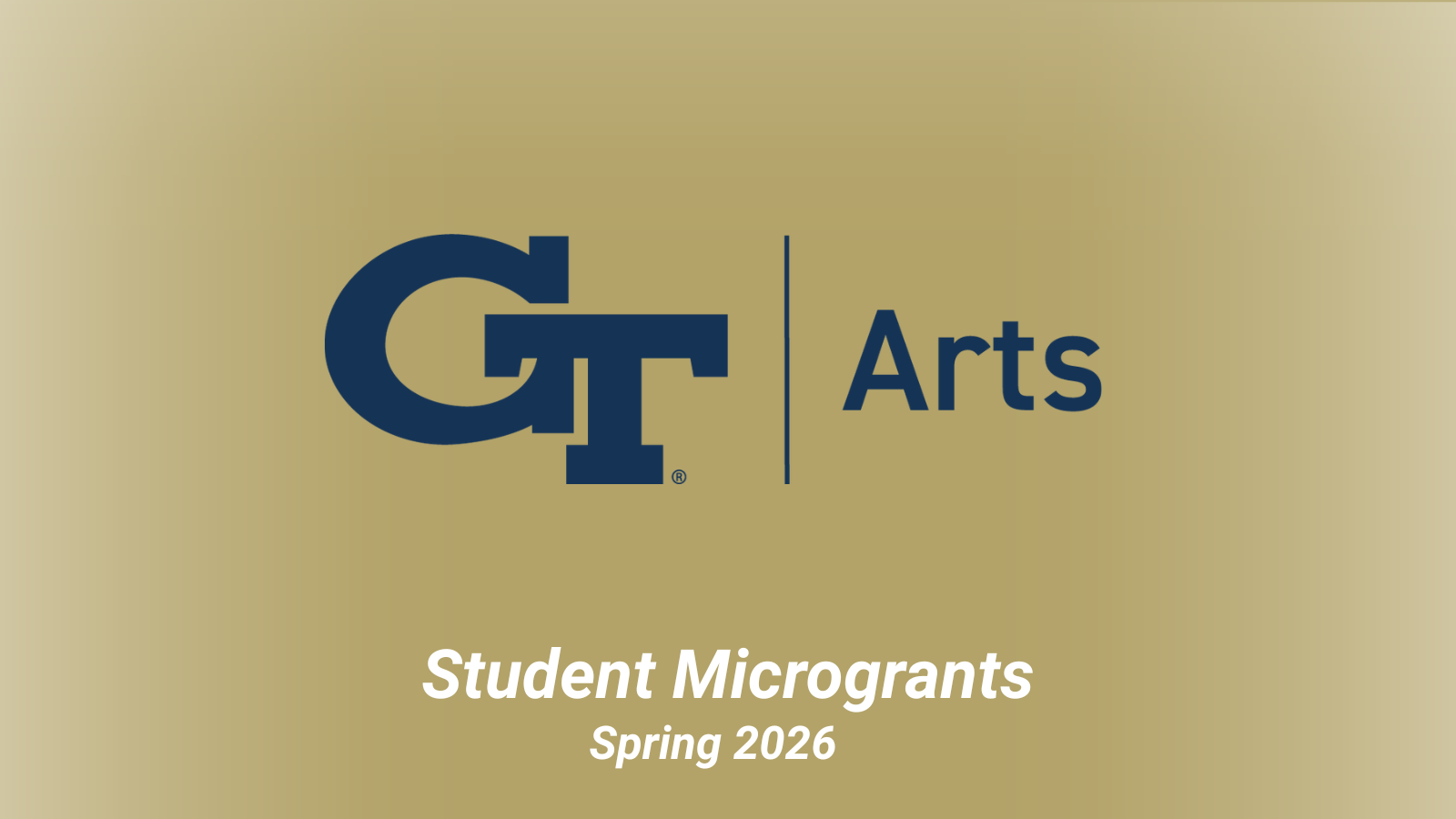Oct. 22, 2024
It was a full house in Georgia Tech’s Marcus Nanotechnology Building for the Oliver Brand Memorial Lectureship on Electronics and Nanotechnology on October 15, 2024. The lecture was presented by Michael Strano, Carbon C. Dubs professor of chemical engineering at MIT, on nanoelectronics grafted onto and within colloids for colloidal state machines and micro-robots.
“We have gathered today to remember a remarkable individual, Professor Oliver Brand, and his contributions to Georgia Tech and to the field of electronics and nanotechnology,” said Michael Filler, Institute for Matter and Systems deputy director.
“Beyond his academic success, Oliver was a mentor, a colleague, and a friend,” Filler added. “He was known for his sharp mind, his gentle style, and his unwavering support for those around him. His ability to foster collaboration has left an indelible mark on the community, near and far.”
Strano’s talk was the second annual lecture in honor of Brand who served as executive director of the Georgia Tech Institute of Electronics and Nanotechnology (IEN) from 2014 - 2023.
While he never worked directly with Brand, Strano emphasized Brand’s impact in the field of electronics and nanotechnology as well as his impact during the Covid-19 pandemic.
“I can’t say anything better than what Oliver’s colleagues have already said,” said Strano. “They said he was a pioneer and described him as trans-disciplinary and had an enormous impact. Few can match the magnitude of his influence on campus and during the pandemic.”
Strano highlighted the importance of interdisciplinary work, which is necessary to create anything on the nanoscale, with emphasis on his team’s work creating nanoelectronics for micro-robotics. Strano, a chemical engineer, mentioned multiple times that his work — creating nanoscale electronics — would not exist without collaborating with electrical engineers.
Brand, who died in 2023, as a legacy that lives on through interdisciplinary research at Georgia Tech. He spent more than 20 years as a member of the Institute’s faculty. In addition to leading IEN, he was a professor in the School of Electrical and Computer Engineering, director of the Coordinating Office for the NSF-funded National Nanotechnology Coordinated Infrastructure (NNCI), and director of the Southeastern Nanotechnology Infrastructure Corridor, one of the 16 NNCI sites.
Brand united researchers in the fields of electronics and nanotechnology, fostering collaboration and expanding IEN to include more than 200 faculty members. In addition to his respected work in the field of microelectromechanical systems, he is remembered for his kindness, dedication, and unwavering support for all who knew him.






